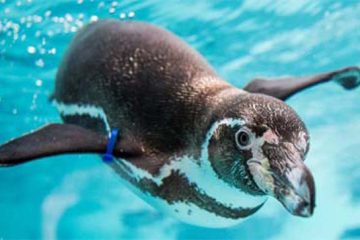AP.
WASHINGTON: Autumn temperatures in the Arctic are at record levels, the Arctic Ocean is getting warmer and less salty as sea ice melts, and reindeer herds appear to be declining, researchers have reported.
“Obviously, the planet is interconnected, so what happens in the Arctic does matter” to the rest of the world, Jackie Richter-Menge of the Cold Regions Research and Engineering Laboratory said in releasing the third annual Arctic Report Card on Thursday. The report, compiled by 46 scientists from 10 countries, looks at a variety of conditions in the Arctic.
The region has long been expected to be among the first areas to show impacts from global warming, which the Intergovernmental Panel on Climate Change says is largely a result of human activities adding carbon dioxide and other gases to the atmosphere.
“Changes in the Arctic show a domino effect from multiple causes more clearly than in other regions,” said James Overland, an oceanographer at the National Oceanic and Atmospheric Administration’s Pacific Marine Environmental Laboratory in Seattle, Washington. “It’s a sensitive system and often reflects changes in relatively fast and dramatic ways.”
For example, autumn air temperatures in the Arctic are at a record 5 degrees Celsius above normal.
The report noted that 2007 was the warmest year on record in the Arctic, leading to a record loss of sea ice. This year’s sea ice melt was second only to 2007.
Rising temperatures help melt the ice, which in turn allows more solar heating of the ocean. That warming of the air and ocean affects land and marine life, and reduces the amount of winter sea ice that lasts into the following summer.
Courtesy of Times of India



